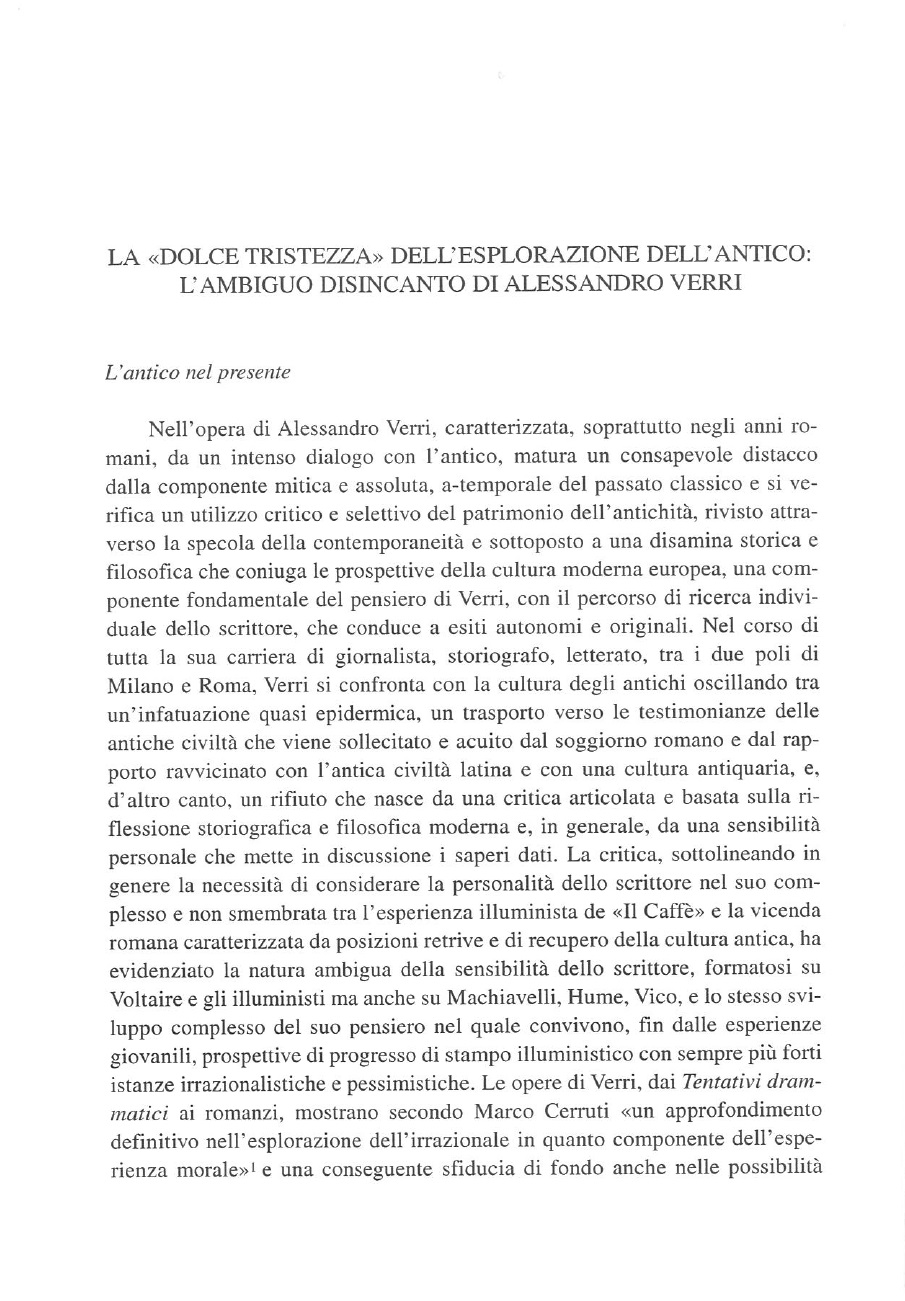
- Roma moderna e contemporanea
- Codice etico
- Editore e amministrazione
- Organi scientifici
- Indicizzazione e valutazione
- Norme editoriali
- Ultimo fascicolo
- Indice dei fascicoli
- Indice degli autori
- Articoli Open access
- Call for papers Numero monografico
- Abbonamenti
- Info recensioni
- Trasferimento di copyright
- Richiesta di autorizzazioni
AMBIENTE DI TEST
Indice degli autori
ROMA MODERNA E CONTEMPORANEA » 2002/1-2 » La città degli artisti nell'età di Pio VI
(ESAURITO)
ISSN 1122-0244
Tatti Mariasilvia
La "dolce tristezza" dell'esplorazione dell'antico: l'ambiguo disincanto di Alessandro Verri
pp.205-230, DOI 10.17426/37394
Articoli
Abstract: THE “SWEET SADNESS” OF THE EXPLORATION OF ANTIQUITY: THE AMBIGUOUS DISENCHANTMENT OF ALESSANDRO VERRI
Alessandro Verri’s long career as a journalist, historian, literate, and learnt man who has lived between the two poles of Rome and Milan finds it distinguishing element in a complex and ambiguous relationship with the world of the ancient. Swaying, on the one hand, between a superficial infatuation while being emotionally and furthermore culturally swept off his feet, towards testimony of ancient civilizations. Onn the other hand, a refusal that stems from an articulated critique based upon modern philosophical and historic considerations and, in general, from a personal sensitivity that questions any given knowledge. In the writer’s narrative works, and particularly, in the antiquarian novel, The Roman nights, the world of the ancient never comes through as a self-satisfying ideal world, but rather as a reality that amplifies, due to the plurality of meaning that it is able to foster, the negative aspects of human nature and social as well as political relations. By refusing the original model of ancient, however, the author saves, as if, in a total abstract scenario, a link with the ancient authors with whom he commences a conversation based upon “intellectual excellent”. Almost, as if it were a purified dialogue, void of connections with the historical reality and set in a timeless world without place, within which the author, who criticizes the contemporary, regains a proper personal intellectual status.

Referenze
- download: n.d.
- Url: http://www.chuhrs.eu/?contenuto=indice-degli-autori-rmc&idarticolo=263
- DOI: 10.17426/37394
- citazione: M. Tatti, La "dolce tristezza" dell'esplorazione dell'antico: l'ambiguo disincanto di Alessandro Verri, "Roma moderna e Contemporanea", X/1-2, pp.205-230, DOI: 10.17426/37394
